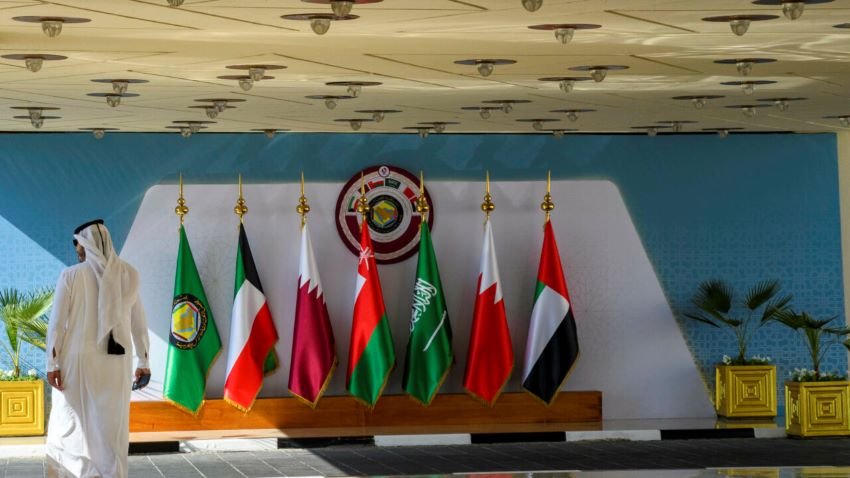Doha (TDI): The Gulf Cooperation Council (GCC) has unveiled a series of steps aimed at strengthening regional security, following Israel’s recent airstrike on Doha that killed several members of Hamas and a Qatari officer.
At an emergency meeting in Qatar’s capital, defense chiefs and senior officials from Bahrain, Kuwait, Oman, Qatar, Saudi Arabia, and the United Arab Emirates agreed to deepen intelligence cooperation, accelerate work on a collective missile-warning system, and hold joint defense drills in the coming months.
According to a statement released after the session, the six-member bloc will begin by integrating intelligence channels under the Unified Military Command. Plans also include the creation of a regional early-warning mechanism for ballistic missile threats and the real-time sharing of airspace information among member states.
The ministers said that joint command-center exercises will start within three months, with live air-defense manoeuvres to follow soon after. The aim, they stressed, is to ensure “the security, stability, and safety of all GCC nations” at a time of heightened regional volatility.
Read More: Pakistan, Saudi Arabia Sign Mutual Defense Pact, Following Israel’s Attack on Qatar
The Doha strike, which targeted Hamas representatives discussing possible ceasefire arrangements in Gaza, was condemned by the council as a “serious and unacceptable provocation.” Five Hamas members, including the son of an exiled political leader, were killed, along with a Qatari security guard. Qatar confirmed it had not been given any warning prior to the attack.
High-ranking defense officials attended the Doha gathering, including the UAE’s Minister of State for Defense Affairs Mohammed Al Mazrouei, Bahrain’s Defense Minister Lt Gen Abdullah Al Nuaimi, Saudi Arabia’s Deputy Defense Minister Prince Abdulrahman bin Mohammed, Oman’s Secretary General of the Ministry of Defense Mohammed Al Zaabi, Kuwait’s Defense Minister Sheikh Abdullah Ali Al Abdullah Al Sabah, and GCC Secretary-General Jasem Al Budaiwi.
Read More: US Urges Qatar to Stay Mediator as Rubio Heads to Doha
The strong turnout was described by officials as a clear signal of the urgency to build a united “regional shield.”
Although the GCC has spoken for decades about tighter military coordination, political rifts have repeatedly slowed progress. However, the new agreement, reached in the aftermath of an unprecedented Israeli strike inside Qatar, was portrayed by delegates as a potential turning point for Gulf security cooperation.



